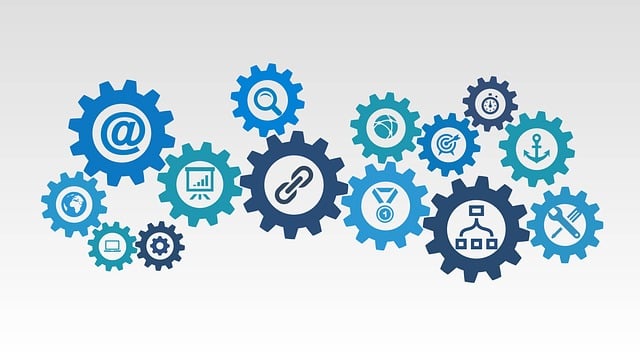AI is revolutionizing restaurant operations by optimizing customer experience, cost reduction, and staff retention through machine learning models. These technologies predict preferences, streamline kitchen processes, enhance menu planning, and automate routine tasks to free up employee time for better customer service. Implementing AI-driven strategies requires handling sensitive data responsibly, adhering to regulations like GDPR, integrating diverse datasets, and using adaptive ML models to evolve with industry trends. Such approaches lead to higher staff retention, improved service quality, and operational efficiency in restaurants.
In today’s competitive restaurant industry, leveraging AI for staff retention strategies is no longer an option but a necessity. This article explores how artificial intelligence (AI) can transform restaurant operations by enhancing employee retention and improving overall business performance. We delve into the role of machine learning models in addressing key challenges, such as predictive analytics and personalized engagement. By understanding the power of AI and its practical implementation, restaurateurs can unlock innovative solutions to foster a vibrant work environment. Discover effective AI staff retention strategies tailored specifically for restaurants.
- Understanding AI and Its Role in Restaurant Business Operations
- Challenges and Considerations in Developing ML Models for Staff Retention
- Implementing Effective AI-Driven Staff Retention Strategies in Restaurants
Understanding AI and Its Role in Restaurant Business Operations

Artificial Intelligence (AI) is transforming various industries, and the restaurant business is no exception. By leveraging machine learning models, AI can optimize multiple aspects of operations, from predicting customer preferences to streamlining kitchen processes. For instance, AI algorithms can analyze historical sales data and ingredient costs to suggest menu items with higher profit margins or predict peak dining times, enabling restaurants to staff accordingly. This not only enhances operational efficiency but also contributes to cost reduction and improved customer satisfaction.
Moreover, AI offers innovative solutions for staff retention strategies in the restaurant industry. By automating routine tasks like scheduling and inventory management, AI frees up employees’ time, allowing them to focus on customer service and engagement. Additionally, personalized recommendations based on customer data can enhance dining experiences, fostering loyalty and encouraging repeat visits. Implementing these AI-driven approaches can create a dynamic work environment that values human interaction while leveraging technology, ultimately leading to higher employee satisfaction and retention rates.
Challenges and Considerations in Developing ML Models for Staff Retention

Developing Machine Learning (ML) models for staff retention in restaurants presents unique challenges, especially as the hospitality industry heavily relies on a robust workforce. One of the primary considerations is data privacy and security, given the sensitive personal information involved in employee records. Restaurants must ensure they adhere to relevant regulations like GDPR or industry-specific standards to protect data during model training and deployment.
Another challenge is accessing accurate and comprehensive datasets. ML models require vast amounts of data to learn and generalize patterns effectively. In restaurants, this includes historical staff retention data, shift scheduling information, employee feedback, performance metrics, and more. Integrating these diverse sources seamlessly into a structured dataset for model training can be complex. Moreover, the dynamic nature of restaurant operations means that new challenges and trends emerge constantly, demanding adaptive ML models capable of evolving with the industry.
Implementing Effective AI-Driven Staff Retention Strategies in Restaurants

In today’s digital era, implementing AI-driven staff retention strategies in restaurants can significantly enhance operational efficiency and employee satisfaction. By leveraging machine learning models, restaurateurs can gain valuable insights into workforce trends, predict turnover rates, and identify key factors influencing employee engagement. These models can analyze vast amounts of data, including shift patterns, performance metrics, and feedback from employees, to provide tailored recommendations for improving retention.
For instance, AI algorithms can pinpoint specific roles or departments with higher than average turnover and suggest targeted interventions. This might include personalized training programs, flexible scheduling options, or incentives designed to foster a sense of belonging. By adopting these strategies, restaurants can create a more positive and supportive work environment, ultimately leading to improved staff retention and better overall service quality.
AI and machine learning models have the potential to revolutionize restaurant business operations by enhancing staff retention. By understanding the unique challenges within this industry, such as high turnover rates and labor shortages, developers can create tailored AI solutions. Implementing effective AI-driven staff retention strategies, including predictive analytics for employee churn and automated scheduling, allows restaurants to optimize their workforce and improve overall efficiency. Embracing these innovative AI staff retention strategies is a game-changer, ensuring a vibrant and sustainable future for the hospitality sector.
